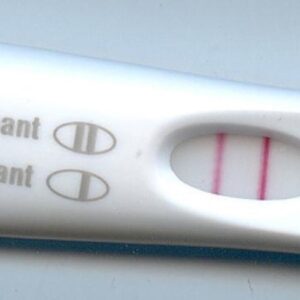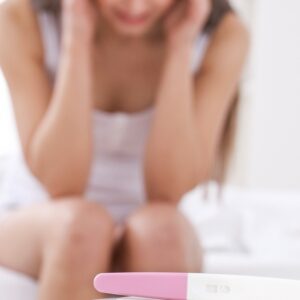For many women today, the odds of getting pregnant can be heavy on their mind if they wish to start trying to conceive or have been trying for a baby for quite some time. Each woman’s body is different, and even the most remote and slight change of circumstances can alter the chances of a woman becoming pregnant.
There are many factors that can improve or reduce the odds of getting pregnant that women and men should always consider when actively trying to conceive a baby.
Typically a healthy couple could realistically conceive a child in between 4 – 9 months without much problem at all.
While this can be the normal time frame, there are many other couples that experience a much different schedule for their upcoming pregnancies. And it can be so frustrating!
What Affects The Odds Of Getting Pregnant
- The health of the mother
- The health of the father
- How to improve the odds
- Video: Improving your chances of getting pregnant
The health of the mother
The first major factor for natural conception would be the health of the mother. If her ovulation cycles are consistent and regular and her fallopian tubes are open and receptive, that is a good starting point for conceiving relatively quickly.
Irregular ovulation cycles can mean the chances of getting pregnant will be significantly lower because it may be more difficult to actually know when ovulation takes place. It can also mean that there may be some hormonal or other disturbances involved that may reduce fertility.
If you do have irregular cycles, make sure to discuss the matter with a gynecologist.
The age of the mother will also have a direct result on how her body ovulates, how many eggs are produced and what quality they are each month. As a woman’s age increases, the egg count decreases and the quality of the eggs diminishes as well.
An important borderline here is 35 years old. After this age, a woman’s fertility decreases rapidly.
If you are over 35 and want to conceive, pay a visit to your OB-Gyn for a health checkup to make sure your chances of getting pregnant are optimized. (It is not impossible to become pregnant just because you are older than 35, but at 40 the chances are quite poor for many women.)
Unfortunately, the risk of miscarriage also increases by with age. This starts to happen already at around the age of 30 years old, but the risk increases rapidly when a mother approaches 40.
Health issues including obesity or underweight issues, high blood pressure, diabetes or other medical conditions can also have a direct adverse effect on how easily a woman can become pregnant. You can read about the link between fertility and weight in women here.
Smoking regularly can also delay the chances of getting pregnant for a couple and for those couples experiencing problems with conception, quitting smoking can drastically increase your chances of becoming pregnant.
Several studies indicate sharply lower fertility for women who smoke, probably related to hormones as well as obstructing the implantation process.
The health of the father
The health of the father can also have a direct impact on how easy a couple will be able to conceive a child.
The sperm count of the man will be the deciding factor on how easily or how difficult it can be to fertilize an egg. The sperm count of the man should be above 20 million/cc to be considered a normal amount. Anything less would make it more difficult for the woman to become pregnant.
Recent research indicates that the age of the father also affects the odds of conceiving because as the man grows older, his sperm quality falls.
According to the study, sperm volume peaked between the age of 30 and 35 years and sperm motility peaked at 25 years old. The overall quality seemed to peak at around 30-35 years of age and was at its lowest for men older than 55 years. Another study found the critical age to be 35 years.
Other factors that could hinder male fertility factors include blockage and obstructive problems in the sperm-carrying tubes, genetic or hormonal problems, drug usage or even environmental toxins or radiation exposure.
Men who wish to conceive a child should abstain from any drug use or exposure to environmental factors that could alter their chances of conception.
Recent studies suggest that men who smoke have on average 17% or less sperm count than men who don’t smoke.
Finally, some newer research has also found a link between weight and fertility in men. Make sure to read it!
How to improve the odds of getting pregnant
Did you find all this information scary? I think knowing is always better because then you have a chance to actually do something to improve the situation.
So, how can you improve your odds of getting pregnant?
Well, obviously, you can’t get younger, but maybe healthier?
If you are overweight, cutting out all carbohydrates you can find (such as sugar, wheat, potatoes, alcohol, and white rice) and starting to exercise can make a huge difference to your chances.
If you can get your BMI (body mass index) below 28, your fertility may improve sharply, according to a study carried out in 2010. And this goes for both women and men!
This could be a perfect time to eat healthier and get off the couch together!
If you are underweight enough to have irregular menstruation, try to increase in weight. Add more carbohydrates to your diet.
If either of you smokes, then stop immediately. Smoking has a long-term negative effect on the chances of getting pregnant.
Cut back on alcohol and, caffeine, any drugs. You can read about how alcohol affects fertility here.
Also, read our tips for getting pregnant here.
Video: Improving your odds of getting pregnant
This useful video will discuss how your age truly affects your chances of getting pregnant, what health issues to address, when to make love and other similar issues.
There. I hope you know a bit more about how to improve your chances of getting pregnant now. Good luck and share any thoughts by leaving a comment below!

Paula Dennholt founded Easy Baby Life in 2006 and has been a passionate parenting and pregnancy writer since then. Her parenting approach and writing are based on studies in cognitive-behavioral models and therapy for children and her experience as a mother and stepmother. Life as a parent has convinced her of how crucial it is to put relationships before rules. She strongly believes in positive parenting and a science-based approach.
Paula cooperates with a team of pediatricians who assist in reviewing and writing articles.







